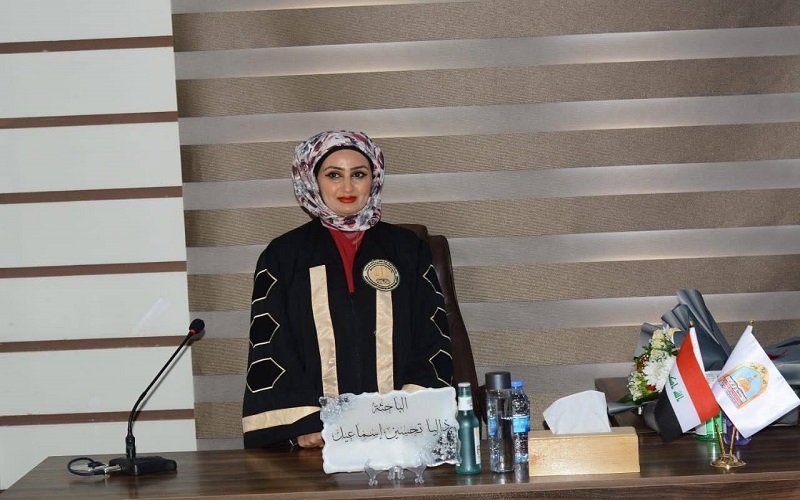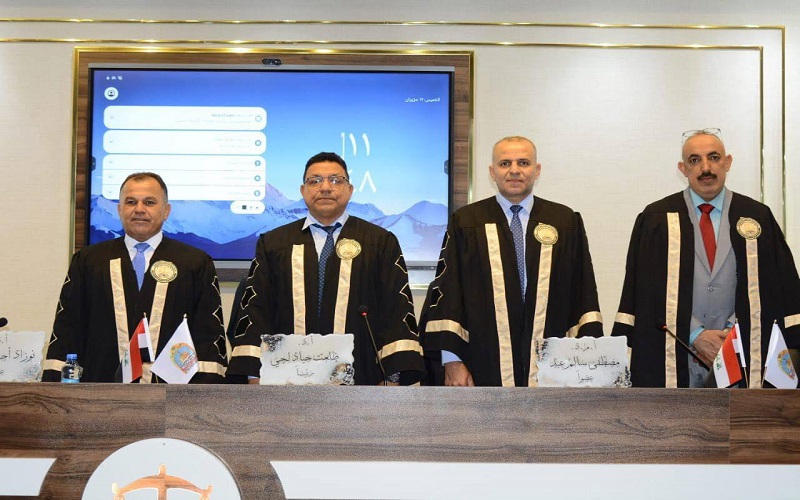A master's thesis from the College of Law and Political Science, titled "The Effectiveness of Smart Sanctions within the Framework of Security Council Resolutions," was discussed by researcher Dalia Tahseen Ismail in Hammurabi Hall at the College of Law and Political Science.
The discussion committee consisted of the following professors:
1. Prof. Dr. Talat Jiyad Laji / University of Kirkuk / College of Law and Political Science... Chairman
2. Prof. Dr. Nawzad Ahmed Yassin / University of Kirkuk / College of Law and Political Science... Member
3. Asst. Prof. Dr. Mustafa Salem Abd / University of Baghdad / College of Law... Member
4. Asst. Prof. Dr. Saadoun Haseeb Arif / University of Kirkuk / College of Law and Political Science ... Member and Supervisor
The thesis, which was discussed in the presence of the Dean of the College of Law and Political Science, Assistant Professor Dr. Murad Saeb Mahmoud, aimed to explain the concept of smart international sanctions and the obstacles facing the implementation of this type of sanctions. It also addressed the concept of international legitimacy and duplicity in Security Council resolutions, how to limit and eliminate duplicity issued by the Security Council, and the effectiveness of smart international sanctions against states that violate international rules.
The thesis concluded that there are several obstacles affecting the implementation of smart international sanctions, the most important of which are the generality and ambiguity of the provisions contained in the UN Charter, the lack of balance in the UN structure, the absence of judicial oversight and legislative bodies within the UN, and the dominance of the major permanent member states over the UN through the right to veto, voting rights, and financial contributions.
 Arabic
Arabic  English
English 

